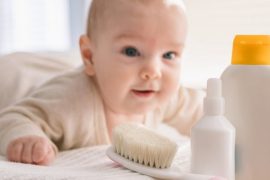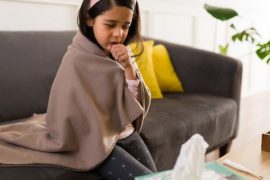Compared to adult skin, newborn skin is 30% thinner, loses moisture quickly, is more prone to irritation, is more delicate and needs more protection.
The skin is the very first protective barrier that protects us from harmful external factors, maintains body temperature and performs a sensory function that allows us to perceive things through touch. In newborns, it is in the process of maturation, so great attention should be paid to caring for it.
Like the heart, lungs or brain, the skin is a vital organ for the proper functioning of our body; For this reason, pediatric neonatologists have shared with us in the baby skin care guide. This includes the procedures that need to be implemented and the types of products to use and the most common problems that may arise:
– Bathing: One of the most important moments in baby skin care is bathing. Ideally, this should be twice a day, with warm water at a body temperature of 36.5 to 37 degrees, indoors to avoid drafts, in the bath for no more than five minutes, using soft products that maintain their integrity. In addition, it is an opportunity for multisensory stimulation, which, according to research, makes them calmer, more comfortable and improves their sleep.
– Dry very well: After bathing, the child must be dried very well. Ideally, use a soft cotton towel; it is recommended to avoid using fabrics with synthetic materials. Also pay close attention to the folds of the skin, where moisture from water usually remains, which can cause irritation or even infection. It is also recommended to cover newborns after bathing to prevent a drop in temperature that can occur up to 10 minutes after bathing.
– Use special products: babies’ skin is extremely permeable, which means that everything we put on it will be quickly absorbed and absorbed by their body. For this reason, the main recommendation is to use products indicated for them with a slightly acidic pH (between 5 and 5.5); compatibility with your skin; without chemicals; allergenic fragrances and clinically tested dyes that leave no residue and are quickly absorbed to avoid reactions that disrupt the normal development of the epidermis, which takes several months to develop.
“The importance of the products we use being chemical-free is that they do not irritate the skin, prevent exposure to toxic substances, and that changes in her health do not develop over time, as studies have shown, and some chemical products can damage their endocrine organs.
– Always moisturize: the skin barrier is not yet mature, so hydration must be constant. Therefore, we must make sure to do this daily with soft foods; pure and gentle; specially formulated to maintain their normal function by promoting hydration, protection and repair to keep it healthy. Moisturizing cream can be used starting with a newborn, provided that its use in infants is clinically proven.
– Diaper area: This area is very careful. After cleaning, we must make sure that the area of the folds, groin and intimate places are well dried. Then apply a suitable protective cream to the baby’s bottom before putting on a clean diaper.
– Sun protection: Sun exposure is not recommended for newborns. Since this is a tropical country and the sun’s radiation is cumulative, it can cause long-term damage to your skin’s health, so it’s recommended to sunbathe for a few minutes during hours with less solar radiation, avoiding hours between 10:00 AM. and 4:00 pm, as the sun’s rays are stronger. Once your baby is six months old, sunscreen can be applied to the most exposed parts of the body.








